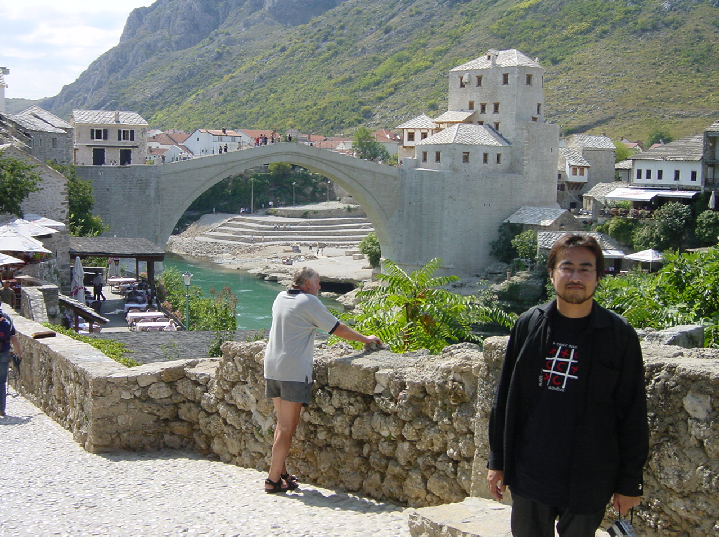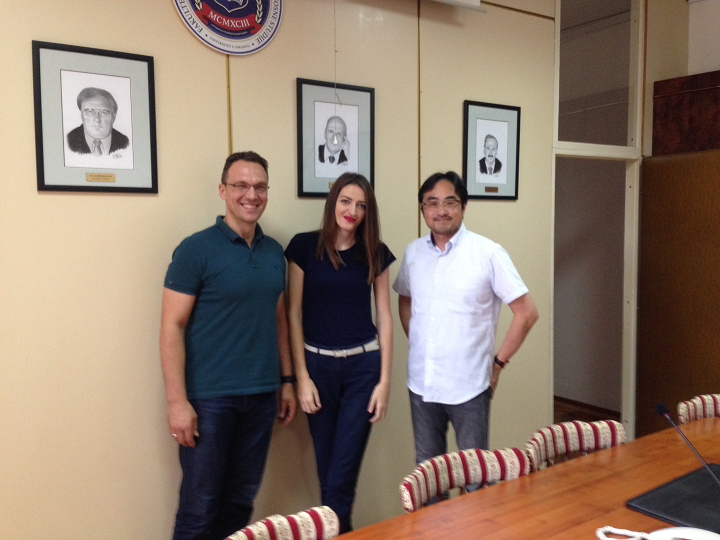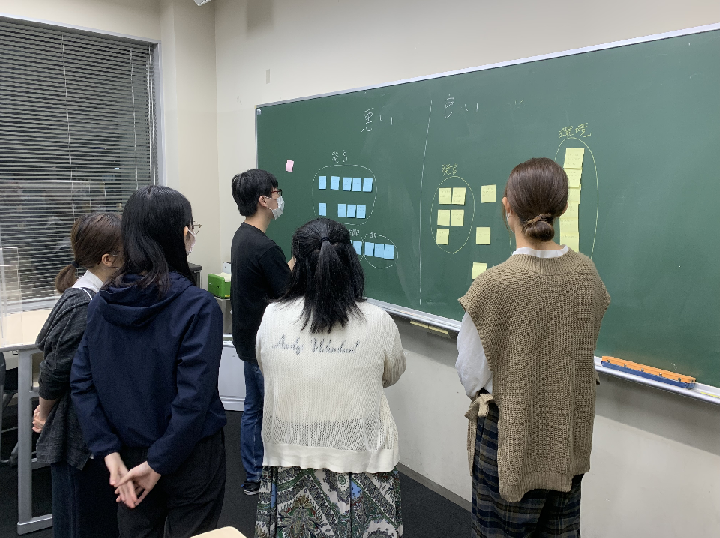Easing Confrontational Relationships between Groups from the Perspective of Social Psychology
Tomohiro Kumagai, Professor
Department of Lifelong Learning and Career Studies, Faculty of Lifelong Learning and Career Studies
Posted July.1,2022
Faculty Profile
Professor Tomohiro Kumagai is pursuing research targeted at resolving wars and ethnic conflict. Kumagai is working to reveal the mechanisms of group psychology to understand the essence of human thinking.
Why Longtime Neighbors Suddenly Became Enemies
My expertise is in social psychology. In my research, I mainly focus on understanding the relationship between groups and conflict resolution.
The starting point for this research was the conflict that broke out in Bosnia and Herzegovina (hereafter, Bosnia) in the 1990s. With the breakup of the former Socialist Federal Republic of Yugoslavia in Central Europe, independence movements gained momentum within the region causing a civil war. In Bosnia, conflict for control of the country developed between several ethnic groups, eventually leading to an intense civil war.
At the time, I was studying organizational theory at the Hosei University Faculty of Business Administration. We started to address current affairs in our class assignments, and I was shocked as I researched the Bosnian War, which was addressed on the news day after day.
An attack from another country is understandable, but I found it hard to understand why people who lived as neighbors in peace were suddenly pointing guns at each other. Depending on the situation, could this happen in Japan? I could not get these unanswerable questions out of my mind.
I came across social psychology as an insight to understand the psychology of organizations. However, my desire to learn social psychology itself eventually became stronger, and I pivoted away from business administration.
In war and conflict, cruel acts are committed under the pretext of defeating the enemy. Not only trained soldiers, but sometimes angry regular citizens also take matters into their own hands.
When people are in groups, a power supersedes their personality, and they are able to do things they normally would not do. What is the rationale behind this behavior? How do humans react when confrontational relationships or conflicts break out between groups? What psychological mechanisms are in play when you are a member of such a group? I am analyzing and pursuing research into understanding these psychological mechanisms that cause such inexplicable and irrational actions.

A photo from when I visited Bosnia in 2004. The bridge in the background is “Stari Most,” which was rebuilt after being destroyed during the Bosnian War. It was designated as the first UNESCO World Heritage Site in 2005.

I am conducting joint research with cooperation from researchers at Sarajevo University for my research into the Bosnian War. A photo from when I visited Sarajevo in 2018.
Exploring the Essence of Human Nature Will Provide Us with Clues to Universal Solutions
What cannot be ignored when considering the solution to confrontation and conflict between groups is the presence of the third parties.
In society, relationships are built with the intricate intertwining of several groups. Therefore, conflict with one group will affect other groups. For example, the Russia Ukraine Crisis has developed into a war, and it is clear that this war is being affected by the actions of surrounding countries. I also want to further my research from the perspective of whether the presence of third parties is a deterrence or whether it provokes the emotions of those involved and intensifies the war.
Exceptional circumstances and unique causes often complicate issues with personal relationships. However, even if we could solve the problem successfully by taking into account all of these circumstances, this would be a solution that would only apply under certain conditions.
To search for a universal solution, we need to strip away the exceptional circumstances and think as simply as possible. By doing so, no matter what situation occurs in any country, these insights can be applied to other regions, including Japan.
I want to generalize these unique circumstances by replacing them with psychological concepts and work on solving the fundamental problem of what is the essence of human thinking.
I Want You to Utilize the Practical Wisdom of Psychology in Your Future Lives
I hope that students continue to have an awareness of “what can I do where I am to improve society even by a little?”
What makes me most happy about returning to my alma mater as an educator is that I can have discussions with students. This is because discussions require students to have a positive mindset where they express the knowledge they have acquired in their own words and try to apply it, rather than learning passively.
When you enter society, you will have more opportunities to be involved in forming medium-to-long-term plans. However, humans are not very good at depicting a specific future vision. Our modern society is undergoing significant changes, and it is indeed difficult to make predictions.
That is why I want you to learn psychology to develop a big-picture perspective. In life, sometimes you do not know what road to take, or it feels like you are taking a detour. You are likely to feel flustered if you think you need to make significant changes to improve your situation. However, if you look at things from a big-picture perspective, you will be able to objectively decide how much you need to alter your course to get on track without making sudden decisions.
I want to pass on the baton of practical wisdom so that students can make use of their university studies in their lives.

In seminars, students have lively debates about social psychology. The photo shows students brainstorming ideas about how to increase psychological safety.
Tomohiro Kumagai, Professor
Department of Lifelong Learning and Career Studies, Faculty of Lifelong Learning and Career Studies
Kumagai graduated from the Department of Business Administration, Faculty of Business Administration, Hosei University. He subsequently completed a master’s in business administration at the Hosei University Graduate School of Sociology. Kumagai went on to complete Master’s and Doctoral Courses at the Department of Integrated Human Sciences, Faculty of Arts and Letters, in the Graduate School of Tohoku University. He has a Master’s in Business Administration and a Ph.D. in Literature. After serving as assistant professor at the Graduate School Faculty of Arts and Letters, Tohoku University, and then assistant professor and associate professor at the Otsuma Women’s University Faculty of Humanities, he became an associate professor at Hosei University Faculty of Lifelong Learning and Career Studies in 2018. Kumagai became a professor in 2021. He belongs to the American Psychological Association, Society for Personality and Social Psychology, the Japanese Group Dynamics Association, the Japanese Psychological Association, and the Japanese Society of Social Psychology.

